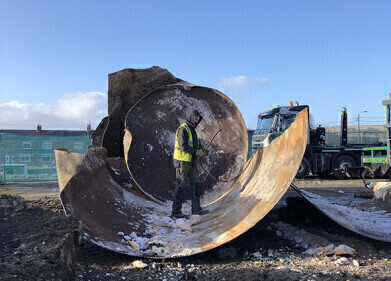Soil remediation
Alberta experiences its third major toxic waste spill
Jun 19 2013
A massive 42 hectares of land in Alberta, Canada has been poisoned due to a toxic waste spill. Around 9.5 million litres of wastewater spilled from the north Alberta pipeline that is operated by oil and gas company Apache Canada.
The spill has come from a leak in a pipeline that was only installed five years ago and was designed to be in operation for 30 years. According to the Energy Resources Conservation Board, Apache first reported the toxic wastewater spill on June 1st; however, the size of the spill was not released until June 5th.
Vegetation and trees across the 104-acre spill site have been destroyed in the third major toxic waste spill the area has seen. The leak in the pipeline occurred around 20 kilometres northeast of Zama City, which is less than 100 kilometres from the border of the Northwest Territories. The spill of 'produced water' is the largest of all the recent spills experienced in North America.
Paul Wyke, a spokesperson for Apache, said that the spilled product was 'salty water' that contained 'trace amounts' of oil. Alberta's energy regulator, Energy Resources Conservation Board, has said that the spilled wastewater contained a total of around two thousand litres of oil - equating to two-hundred parts per million of oil.
The Dene Tha', a First Nations government of the South Slavey in Northern Alberta, has suggested that the leaked substance contains more than just salty water and oil. The Dene Tha' has estimated that the wastewater also contained sulphurous compounds, hydrocarbons, metals, chemical solvents, high salt levels, naturally occurring radioactive materials and oil industry additives.
Although produced-water leaks involve an easier clean-up process than oil spills, it is possible that the spill was happening over a course of months before it was detected. This could mean that the clean-up process will be more difficult and that more widespread damage could occur. The duration of the leak is currently being investigated in order to determine what damage could have been caused beyond that which is immediately visible.
Events
Apr 08 2025 Targi Kielce, Poland
Apr 08 2025 Bahrain
Apr 10 2025 Beijing, China
Apr 10 2025 Beijing, China
Apr 15 2025 Moscow, Russia














